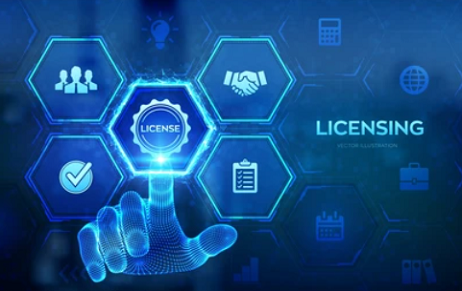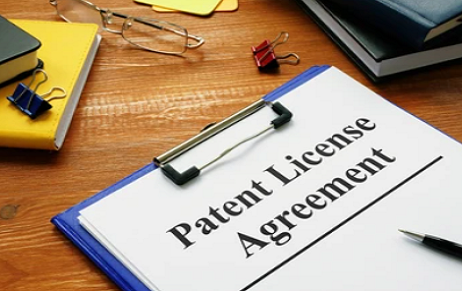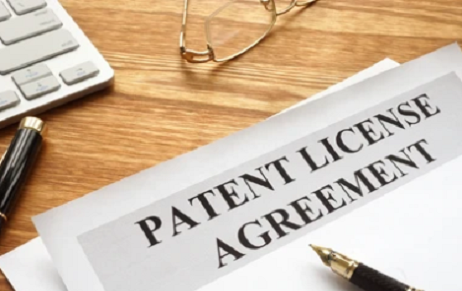Introduction Global licensing of patents has become a major aggregator in pushing growth of technology…
Patent And The Law – Licensing Of Patent In India
Patent licensing is a concept that provides that patent holder can further delegate his/her rights to a person who can further use it according to the patent holder and take his invention forward and in return pay royalty or remuneration to the holder.
PATENT LICENSING

[Image Source: Shutterstock]
TRIPS (TRADE RELATED ASPECTS TO INTELLECTUAL PROPERTY RIGHTS)
Doha conference 2001 held by WTO necessitated the medicine over IPR. It was decided clearly that the medicines are provided at cheaper rates for protecting the public health and the country’s member to it may decide on their own about the terms and conditions regarding the same.
In India, the idea of Compulsory Licensing is in play. It alludes to a permit given to a person involved with assembling, sell or utilize the item or product which has been conceded a patent without the consent of the proprietor. The conditions for compulsory licensing is secured under section 84 and 92 of the Indian Patent Act 1970 which expresses that:
Compulsory licensing will be allowed on the accompanying grounds (Section 84):
- That the reasonable prerequisites of the general population regarding the licensed creation have not been fulfilled or,
- That the protected development isn’t accessible to people in general at a sensibly reasonable cost or,
- That the protected development isn’t worked in the region of India.
Segment 92 of Patent Act, 1970, manages different grounds on which the compulsory licensing will be allowed. These are unique arrangements or special provisions for compulsory licensing on warnings by Central Government. Government awards necessary licenses on the accompanying grounds:
- For trades, on the off chance that the item is utilized for sending out to another nation, at that point government can allow licenses yet this is just in uncommon conditions.
- In circumstances of national emergency or if there is a public crisis, where the item is required in earnest conditions like in war or in wellbeing.
Preferences for according the compulsory license:
- License is significant for giving moderate items, for example, medications and medications to people in general. It guarantees that such a creation is used for the public at great as opposed to being held with the patentee, in this manner, demonstrating advantageous for the immature and the non-industrial nations or underdeveloped nations.
- The compulsory license has arrangements for simultaneously remunerating the proprietor of the patent so it keeps on going about as a motivating force alongside the item being utilized by the general population.
- In situations where there isn’t any money related quality of the patentee for creation of the development, the equivalent can be conceded to the licensee to do the creation.
Natco Pharma Ltd. is the primary organization to file a petition for necessary authorizing for delivering the generic form of Bayer’s Corporation’s licensed medication Nexavar. This medication was utilized in the treatment related to kidney and liver disease. The patent office in 2012 allowed the obligatory permit/ compulsory license to Natco Pharma for a similar medication for the explanation that general society didn’t approach this medication at moderate cost and the protected innovation was not worked in India. They expressed that all the 3 points of section 84 were satisfied that,
- The sensible necessities of the general population were not satisfied
- That it was not accessible at a reasonable cost
- Licensed innovation was not worked around in India.
Thus, Natco applied for the necessary license under S. 84 of the Patent Act for Bayer’s licensed medication Nexavar. Nexavar was accessible by the Bayer Corporation for $ 6299 for a month’s course. Natco Pharma recommended that a similar medication would be accessible by the name of Sorafenib Tosylate for just $196. It was recommended that it would profit the entire public of India which is in millions. The administration ruled for the overall population wellbeing and conceded the mandatory license to Natco Pharma.
For another situation of compulsory license in India, Lee Pharma, a Hyderabad based Indian pharma organization, documented an application for a necessary license for the patent covering AstraZeneca’s diabetes the board drug Saxagliptin. The grounds affirmed by Lee Pharma were that:
- The patentee has neglected to meet the sensible prerequisites of general society,
- The protected creation isn’t accessible to general society at a sensibly moderate cost, and
- The protected creation isn’t worked in India.
Notwithstanding, all the three grounds of Lee Pharma were dismissed by the Controller General, and the Compulsory license application was denied on the ground that Lee Pharma neglected to exhibit what the sensible prerequisite of people, in general, was as for Saxagliptin. The Controller General likewise expressed that Lee Pharma neglected to show the specific number of patients being recommended the licensed medication and the number of them couldn’t acquire it because of its non-accessibility and thusly it was hard to hold if producing in India was vital.
Author: Niharika Singh, a 5th-year student of GGSIPU University, an intern at Khurana & Khurana, Advocates and IP Attorneys. In case of any queries please contact/write back to us at [email protected].



